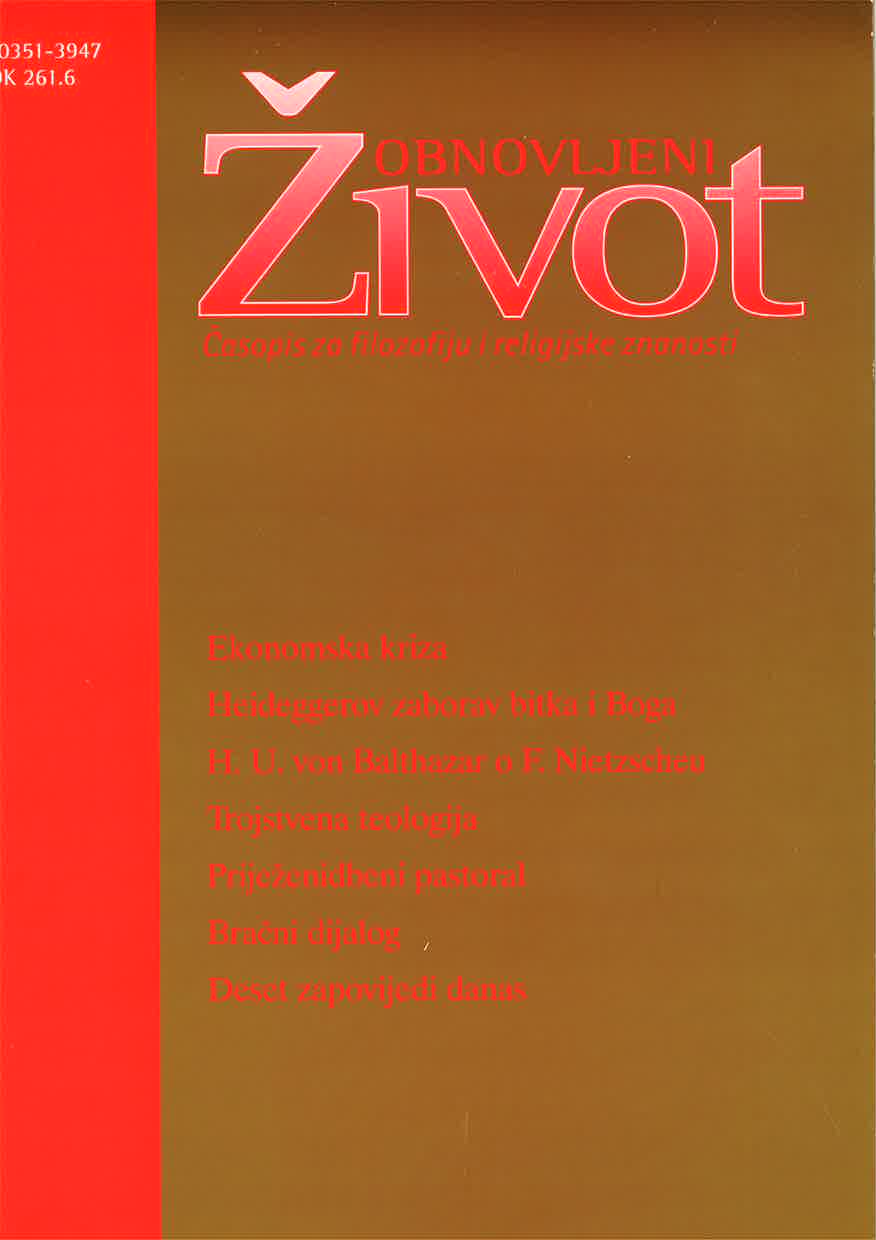What Should Theology Hear, Get and Take from The Antichrist?
Hans Urs von Balthasar on Friedrich Nietzsche
Keywords:
Hans Urs von Balthasar, Friedrich Nietzsche, tragicalness, faith, Church, Sören KierkegaardAbstract
This article presents Balthasar's reflections on Nietzsche's philosopy. Hans Urs von Balthasar in his work «The Apocalypse of the German Soul», which is a rewritten, more profound and richly supplemented issue of his doctoral thesis titled «A History of the Eschatological Problem in Modern German Literature», the last section is devoted to the battle or «duel» between Søren Kierkegaard and Friedrich Nietzsche. One could say that it is through Søren Kierkegaard's philosophical-theological thought that Blathasar reflects critically on Friedrich Nietzsche's philosophy. The first section of this article is devoted to illustrating this duel. In the second section the author points out the elements in Nietzsche's philosophy which, according to Balthasar, should be inspiring even to theology. This has to do primarily with the importance of the tragicalness of man's existence, the Christian faith and the Church. In Balthasar's opinion, the Christian faith is a radicalization and completion of all tragicalness, and so too Nietzsche's philosophy. Finally his concluding comment stresses, through the prism of Balthasar's analysis, how contemporary theology should begin to deal thoroughly with Nietzsche, moreover to enter into an intensive process of learning from his philosophy: one can be opposed to Nietzsche only if one thinks as he thinks, only if one has learned from him. Then this theological «contra» will no longer be a «contra» but rather a reflection on «something greater», a reflection «beyond» Nietzsche himself (without his christianization).
Downloads
Published
Issue
Section
License
Jednom prihvaćeni članak obvezuje autora da ga ne smije objaviti drugdje bez dozvole uredništva, a i tada samo uz bilješku da je objavljen prvi put u Obnovljenom životu. Uredništvo će obavijestiti autora o prihvaćanju ili neprihvaćanju članka za objavljivanje.
Članci objavljeni u časopisu se, uz prikladno navođenje izvora, smiju besplatno koristiti u obrazovne i druge nekomercijalne svrhe.


